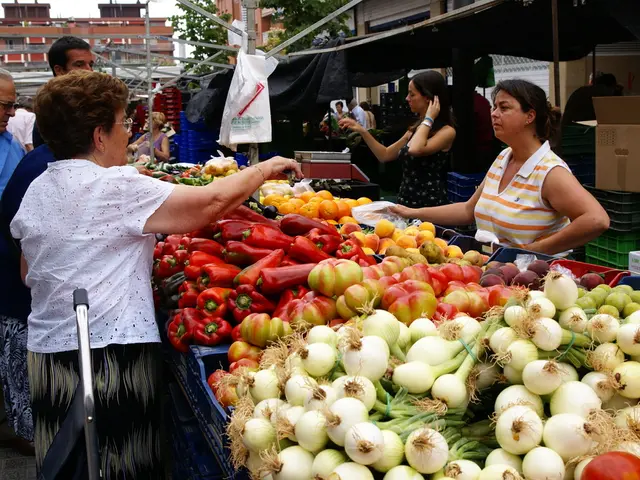United SDG Pledge: Join Hands in Achieving Global Goals (2)
joining forces to prioritize sustainability and humanitarian efforts: pledge for a compassionate world
Every September 21st marks Kwame Nkrumah Memorial Day in Ghana, commemorating the birthday of the nation's foremost independence leader, first prime minister, and president. Nkrumah strongly believed in Africa's potential, and today, his vision resonates with the African Union's Agenda 2063. A future where we collaborate to build a desirable Africa.
Recently, Ghana unveiled its 2022 Voluntary National Review (VNR) report on the Sustainable Development Goals (SDGs). The 1992 constitution of Ghana outlines expectations for government, citizens, and other entities on the responsibilities the state should fulfill, which encompass human rights, balanced development, environmental protection, international affairs, and more. The 2022 VNR report assessed a total of 102 indicators, a noticeable increase from the 66 assessed in 2019.
World leaders declared the years 2020–2030 as the Decade of Action for the SDGs in September 2019. Since then, the COVID-19 pandemic has wreaked havoc on lives, livelihoods, global supply chains, businesses, and stalled progress on achieving the SDGs. Despite these challenges, giving up is not an option for Ghana, as the SDGs offer a reliable pathway towards a prosperous, inclusive, resilient, and peaceful world.
Let us examine the status of the indicators as reported in Ghana's 2022 VNR on the SDGs.
SDG goal 6: ensuring availability and sustainable management of water and sanitation for all
Ghana is on track to achieving equitable access to basic drinking water services by 2025, with access to improved drinking water sources improving from 87.7% to 92.2%. Sachet water and pipe-borne water are the main sources of water in urban areas, while borehole/tube well and pipe-borne water are the primary sources in rural areas. It remains unclear how pricing changes for sachet water may impact this progress. Currently, urban areas such as Greater Accra, Bono, Upper West, Ashanti, and Central regions are close to achieving universal access, while regions such as Northern, Oti, North East, and Savannah still lack access to improved water sources.
Sanitation is another critical issue, as household toilet coverage has risen from 46% in 2010 to 59.3% in 2021, with urban households having higher access to toilets than rural ones. The use of public and open defecation has declined in both periods. To end open defecation by 2030, Ghana needs an average annual reduction of about 2% of the population without toilets, a slow but steady improvement. Data from the 2021 population and housing census (PHC) revealed that 70.6% of households still dispose of wastewater on the ground and on the street, indicating the need for improved wastewater management practices.
SDG goal 7: ensuring access to affordable, reliable, sustainable, and modern energy for all
Ghana is progressing towards universal access to electricity, with 86.3% of the population connected to the national grid in 2021. Urban households utilize about 95.2% of electricity as the main source of lighting, while rural areas rely more on gas (LPG) and charcoal for cooking. However, the increasing cost of LPG poses a challenge, as media reports have shown price hikes, potentially driving consumers to opt for cheaper but less sustainable alternatives like charcoal. The gradual improvement in the share of renewables in energy generation mix, decreasing cost of solar panels, and persistent disparities in access to electricity between northern and southern parts are emerging issues for consideration.
Previously, we reviewed progress made for SDG goals 1–6.future editions will explore the remaining SDG goals, including goal 8 – promoting sustained, inclusive, and sustainable economic growth, full and productive employment, and decent work for all. Goal 9 – building resilient infrastructure, promoting inclusive and sustainable industrialization, and fostering innovation. Goal 10 – reducing inequality within and among countries. Goal 11 – making cities and human settlements inclusive, safe, resilient, and sustainable. Goal 12 – ensuring sustainable consumption and production patterns. Goal 13 – taking urgent action to combat climate change and its impacts. Goal 14 – conserving and sustainably using the oceans, seas, and marine resources for sustainable development. Goal 15 – protecting, restoring, and promoting sustainable use of terrestrial ecosystems, sustainably managing forests, combating desertification, and halting and reversing land degradation and biodiversity loss. Goal 16 – promoting peaceful and inclusive societies for sustainable development, providing access to justice for all and building effective, accountable, and inclusive institutions at all levels. Goal 17 – strengthening the means of implementation and revitalizing the global partnership for sustainable development.
Baptista, a hybrid professional and the Executive Director of ProHumane Afrique International, leads a charitable, development, and think tank organization working with communities and individuals to create sustainable solutions to uplift communities through diverse pro-poor initiatives. Baptista is a realist, affable, simple, and humane. Connect with ProHumane Afrique International by emailing [email protected], following on social media sites such as Linked-In, Twitter, Facebook, and Instagram, or calling/WhatsApp +233(0)262213313. Join us in the mission to #behumane #thegivingcapsules #prohumaneafriqueint#fowc.
- In the pursuit of sustainability and humanitarian efforts, the business sector must adapt and innovate to foster growth and development.
- The infrastructure for sustainable energy is crucial for the economic growth of any nation, ensuring affordable, reliable, and modern energy sources for all.
- Sustainable development requires data-driven decision making, with educational programs in environmental science and data-and-cloud-computing essential for future leaders.
- The fashion-and-beauty industry can contribute to sustainability by adopting ethical production methods and promoting employment opportunities in line with personal-growth and personal-finance objectives.
- The food-and-drink sector must focus on sustainable farming practices and the reduction of food waste to promote environmental sustainability and the economy.
- Investing in education and self-development is key to driving innovation and employment opportunities, which are crucial for sustained economic growth.
- Combating climate-change demands collaboration among industries, governments, and individuals, with science playing a pivotal role in understanding and addressing the impacts of climate change.
- Cybersecurity plays a vital role in protecting businesses and personal-finance from online threats, a critical aspect of the digital economy that continues to grow.
- To promote a compassionate world, individuals can invest in local businesses and social-media platforms that prioritize sustainability and humanitarian efforts.
- Humanitarian efforts should extend to the sports industry, with social responsibility initiatives aimed at improving employment opportunities and access to education in underserved communities.
- As sports popularity grows, sports-betting can contribute to economic growth while also generating funds for social initiatives and community development.
- With the increasing influence of sports on lifestyle and entertainment, it is essential to prioritize environmental concerns, particularly when it comes to sports-venue infrastructure and ticketing.
- By fostering a culture of renewable energy, education, and employment opportunities, we can build a sustainable future for the next generation, focusing on both environmental-science and personal-growth.
- The weather has a significant impact on agricultural production and the economy, highlighting the importance of climate-change mitigation efforts for a resilient, sustainable future.
- In addition to focusing on sustainability, we must remember the importance of a balanced lifestyle, with areas such as fashion-and-beauty, food-and-drink, and entertainment helping to promote overall personal-growth and well-being.








